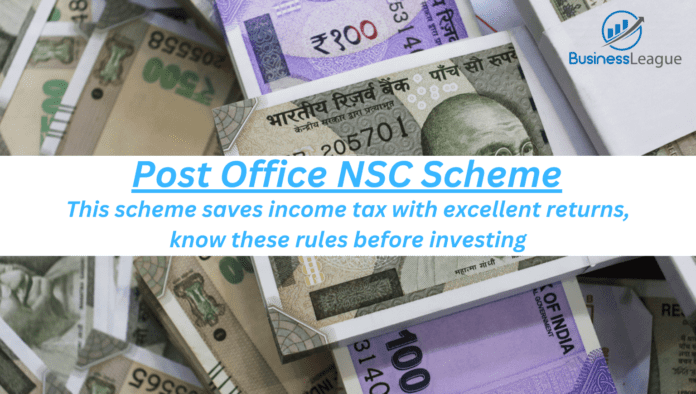Post Office NSC Scheme: Like banks, many schemes are run in post offices also. In these schemes, investors get better interest and also get tax exemption. One of these schemes is National Savings Certificate (NSC). This scheme matures in 5 years.
Interest is getting 7.7 percent
At present 7.7 percent interest is being given in NSC. Interest is calculated on an annual basis. However, the amount is paid to you on maturity. If you want to invest the money in this 5 year scheme, then you should understand some rules related to it.
Withdrawal before 5 years only under these conditions
If you invest money in NSC for 5 years, then you cannot withdraw it before 5 years. Nor can there be any partial withdrawal in this. You will get the facility of premature withdrawal only in special circumstances like in case of death of the account holder, in case of death of one or all the account holders in a joint account, when a court order is issued or in the process of confiscation. , It can be encashed only by Gazetted Officer.
If the amount is not withdrawn even after maturity…
If NSC matures after 5 years, but you still do not encash it, then it does not renew automatically. In this situation, in the period after maturity, you are given interest on NSC as per normal savings account and that too, it can be given only for the next two years.
Extension rules
If you want to continue NSC for the next 5 years even after maturity, then you have to apply again for it. In such a situation, it will be considered as a deposit of the new date and the benefit of interest on it will also be available as per the interest of the new certificate taken on that date.
How much can you invest?
You can invest minimum Rs 1000 in NSC and thereafter in multiples of Rs 100. There is no limit on maximum investment.
Who can invest
Any Indian citizen can open NSC account. NSC can be purchased in the name of the child on behalf of his/her parents or guardian, whereas a child above 10 years of age can also buy NSC in his/her own name. Two to three people can also open a joint account.
Also Read-
Post office FD vs NSC: Where you get more benefits, check calculation
Post Office FD Account: How to open Post Office FD Account, Know interest and details
Explainer: Why did government employees threaten to strike over old pension? Know the whole matter


